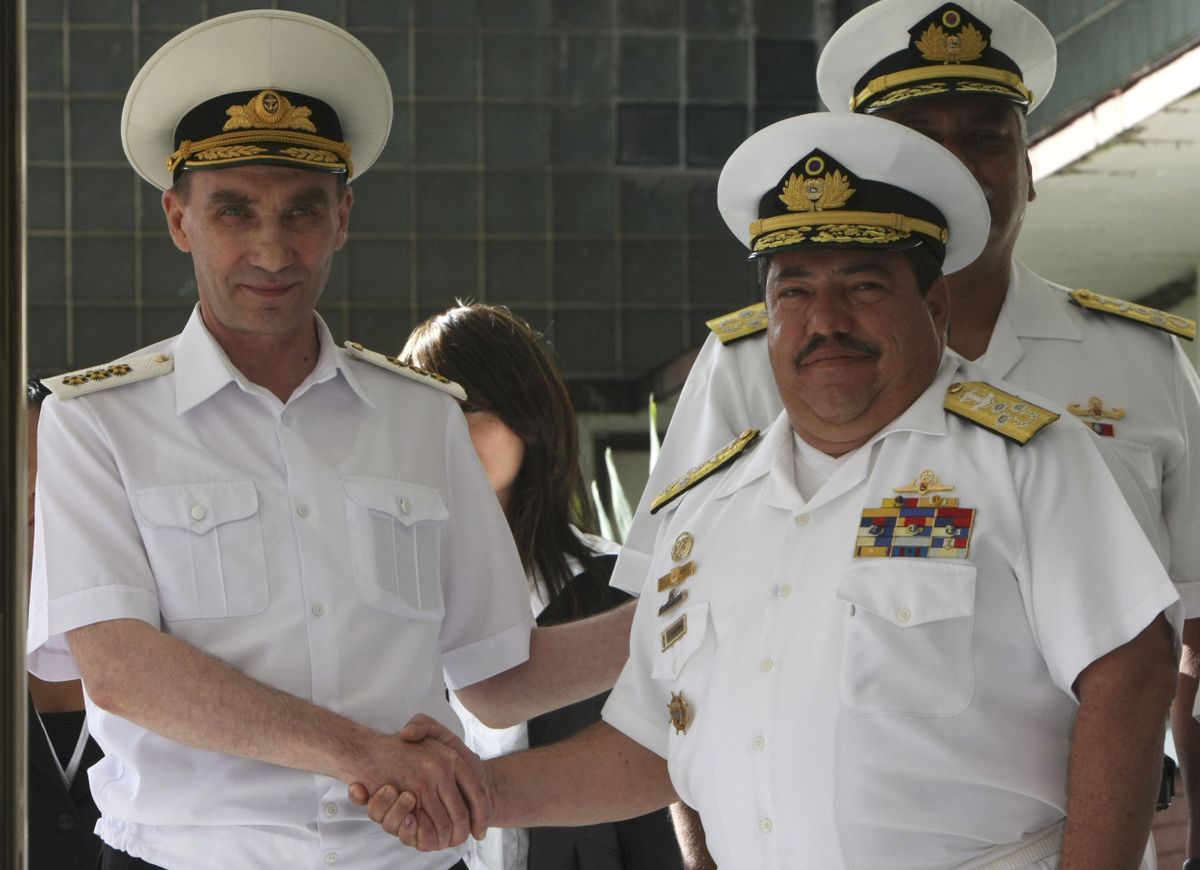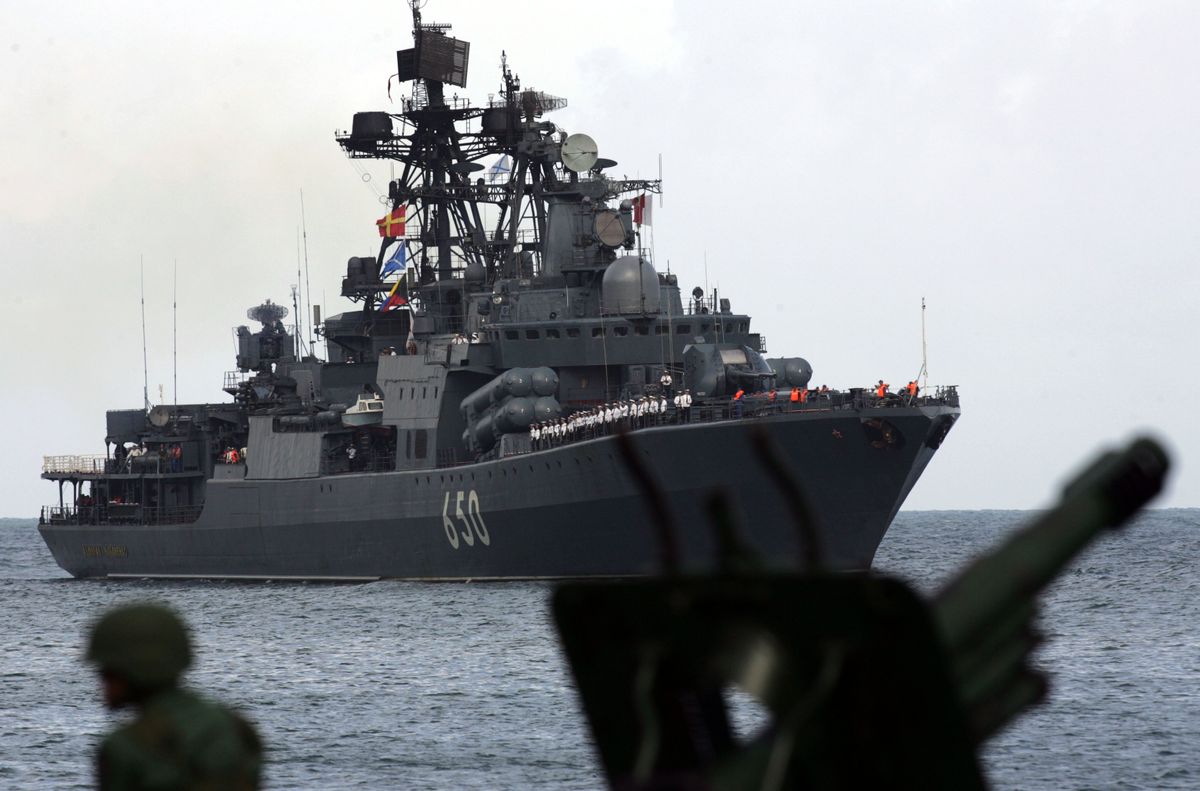Medvedev, Russian flotilla paying a visit to Venezuela
Chavez sending message to Obama, analysts say
Vladimir Sergeevich, commander of the Russian fleet, left, shakes hands with his Venezuelan counterpart Zahin Quintana during a meeting in Caracas on Tuesday. (Ariana Cubillos / The Spokesman-Review)
CARACAS, Venezuela – The arrival of Russian President Dmitry Medvedev and a naval squadron to Venezuela this week is an unequivocal message to President-elect Barack Obama that his most nettlesome challenge in the Americas will be Venezuela’s populist government and its oil-fueled crusade against U.S. influence, political analysts say.
President Hugo Chavez, who once called President Bush “the devil,” has held out his hand to Obama and expressed a willingness to re-engage Washington after expelling the U.S. ambassador in September. Chavez also describes his scheduled meeting with Medvedev today and the joint naval maneuvers with the Russian flotilla as friendly exchanges that are not designed to provoke the United States.
But despite Chavez’s conciliatory words, Obama faces the task of blunting the pretensions of a country intent on building alliances with American adversaries, including Iran and, critics say, Marxist guerrillas in neighboring Colombia. Obama faces more immediate worries, including two wars, looming questions about Iran’s nuclear ambitions and a resurgent Russia.
Venezuela poses no strategic risk. Chavez, though, has worked energetically this decade to fill the vacuum created by declining U.S. influence in Latin America, a product of Bush administration policies that were unpopular here. In the process, Chavez has become perhaps the world’s most vocal anti-American leader and structured an alliance with figures unfriendly to Washington in countries as divergent as Nicaragua and Belarus.
“Obama’s dealing with a country that in the past eight or nine years has been taking a very strongly anti-U.S. position that puts the United States in a central negative role,” said Peter DeShazo, a former U.S. diplomat who oversees the Latin American program at the Center for Strategic and International Studies. “Chavez’s whole revolution is based on supplanting the influence of the U.S. in the region.”
Under a narrative that has become a cornerstone of foreign policy here, the United States is determined to kill Chavez, seize Venezuela’s vast oil reserves and ensure that Venezuelans remain subservient to “the empire.” Like his close ally in Cuba, Fidel Castro, Chavez represents those subjugated by the United States. His role is to form a union with like-minded nations to thwart an American-dominated “uni-polar” world.
Venezuela has entered into economic agreements with President Alexander Lukashenko of Belarus, who has been called Europe’s last dictator, and signed contracts worth $4.4 billion to buy assault rifles, military helicopters and combat aircraft from Russia. Venezuela has built a tight alliance with Nicaragua’s Daniel Ortega, who is sharply at odds with the United States, and subsidized oil sales to Cuba.
“It should not surprise anyone in the United States,” Bernardo Alvarez, Venezuela’s ambassador to Washington until this September, said in a recent interview. “From the moment Chavez was elected, he planted the system of multipolarity, and not uni-polarity.”
In September, Chavez said that Venezuela had become a strategic ally of Russia and that the military exercises represented “a message to the empire: Venezuela is no longer poor and alone, exploited and humiliated.”
As Russian sailors, decked out in black-and-white uniforms, arrived Tuesday at the port of La Guaira, the Venezuelans made a point of providing a memorable welcome as Russia made its first big military deployment to Latin America since the Cold War. A 21-gun salute greeted the sailors as they lined the bow of the destroyer Admiral Chabanenko.

